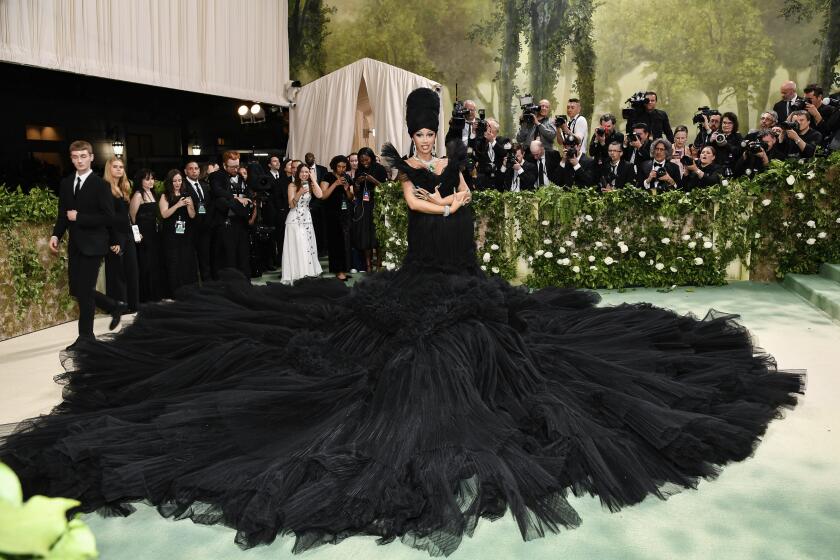The Greatest Scandal
Item No. 1: A city trash truck kills two boys, its compacting rod going berserk and raking a school bus. The Los Angeles City Council orders a moratorium on the purchase of trucks after news stories indicate the manufacturer repeatedly failed to correct design flaws and shoddy workmanship.
Three days later, the City Council lifts the moratorium and resumes purchases of the same trucks from the same manufacturer. City officials say they fear a lawsuit by the manufacturer.
Upshot in Los Angeles: nothing. Neither the mayor nor citizens groups raise a stink. Business continues as usual.
Item No. 2: In 1990 the county Board of Supervisors clandestinely approves huge pension increases for themselves and top county employees. The increase will cost taxpayers $400 million and give some employees pensions greater than their salaries. A county grand jury, state officials and others denounce the supervisors and demand corrective action.
Upshot: After four years of debate, supervisors eliminate pension increases for new employees only. All others continue to receive the benefits.
Item No. 3: On an official trade mission to South Korea, Los Angeles City Councilman Nate Holden attends a small party where young women dance topless on a coffee table. Pictures get taken. In one picture, a man’s hand reaches toward a dancer’s midriff. In another, Holden can be seen reclining on a sofa while a dancer prances in front of him.
Holden keeps the pictures, stashing them in a cubbyhole at his condo. Eventually, and incredibly, he hands them over to police during a burglary investigation at the condo. The pictures end up in court and in the hands of the press. By way of explanation, Holden says topless parties are standard business practice with Koreans.
Upshot: Korean businessmen in L.A. complain that Holden has slurred their business practices. Otherwise, nothing.
*
No doubt anyone who pays even casual attention to local government can produce their own list of such episodes. What goes here? In virtually any city of equivalent stature--say Chicago or Philadelphia or New York--events such as these would provide the fodder for intense civic dramas. Oh, the scandal! The rending of garments! The figurative blood left on the floor!
But here? Nah. We snooze away the day and let our public officials do what they may. We respond--or, rather, do not respond--in such a way as to suggest that civic life leaves us with neither love nor hate nor anything in between. Merely indifference.
Last month, a judge in New York was fingered for cutting loose a couple of girlfriend beaters who then proceeded to beat some more. The city erupted into obsessive hand-wringing over the handling of abusers.
The judge, of course, got skewered. The mayor demanded his head. So did the governor. At one point the furor grew so loud that the judge had to trot out his wife to testify that he was not a wife-beater himself.
New York, see, knows how to play a civic drama. You get the emotional ups and downs, you get the catharsis that comes from any confrontation with moral slippage. Finally, you get the wonderful feeling of satisfaction as the bad guys are hauled off.
After all, why did God make cities if not to provide these dramas? Once, long ago, even Los Angeles seemed to understand this great rule. In the early part of the century, the city flew into outrage and eventually recalled Mayor George Harper when certain photographs were made public of the mayor surrounded by ladies of the night, a situation spookily close to the Holden affair.
In those days, the city breathed politics and reform. Los Angeles was the birthplace of the public initiative in California, a device that grew out the public’s rage over special interests. As for level of public discourse, here’s what Hiram Johnson, candidate for governor, had to say in a Los Angeles speech about a political enemy, Harrison Gray Otis, the publisher of the Los Angeles Times:
“In the city of San Francisco we have had vile officials; we have had rotten newspapers. But we have had nothing so vile, nothing so low, nothing so debased . . . as Harrison Gray Otis. He sits there in senile dementia with gangrene heart and rotting brain, grimacing at every reform, chattering impotently at all things decent, frothing, fuming, violently gibbering. He is one thing that all California looks at when, in looking at Southern California, they see anything that is disgraceful, depraved, corrupt and putrescent--that is Harrison Gray Otis.”
*
Wonderful. Otis, of course, rhetorically returned the favor. When was the last time you heard anything like it in Los Angeles?
More important, when was the last time any of us listened? When did the civic drama of Los Angeles stop being fun, and why?
Perhaps it stopped in the 1950s when Los Angeles spread over such a huge territory that the various parts no longer had much connection to the core.
Perhaps it was Tom Bradley, a mayor who seemed to use boredom as a political tool.
Or perhaps Los Angeles suffers from its proximity to Hollywood. Civic drama has a hard time competing with the false but electric drama of celebrity and celebrity-making.
For whatever reason, we lost the connection. Pension scandals cannot make us rise. Public cowardice leaves us limp and submissive. Sins of the flesh cannot hold our interest.
In the end, we look the other way. We don’t care. And for a city, that may be the greatest scandal of all.
More to Read
Start your day right
Sign up for Essential California for news, features and recommendations from the L.A. Times and beyond in your inbox six days a week.
You may occasionally receive promotional content from the Los Angeles Times.






